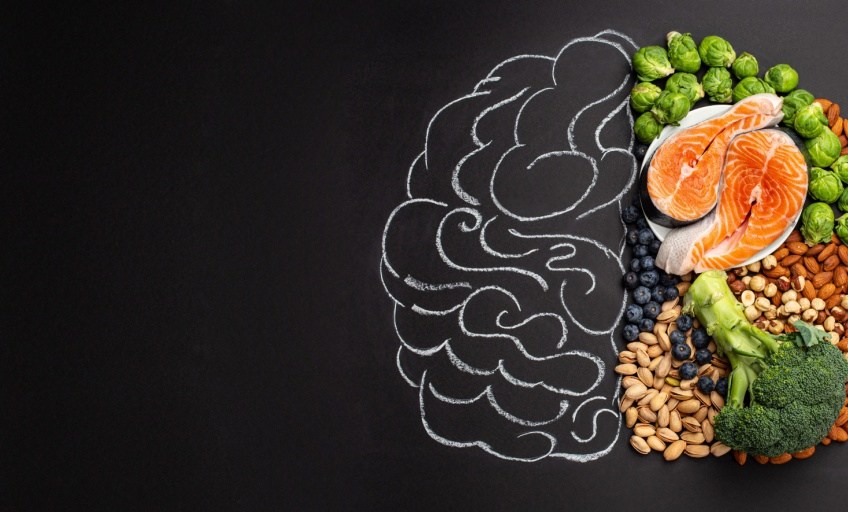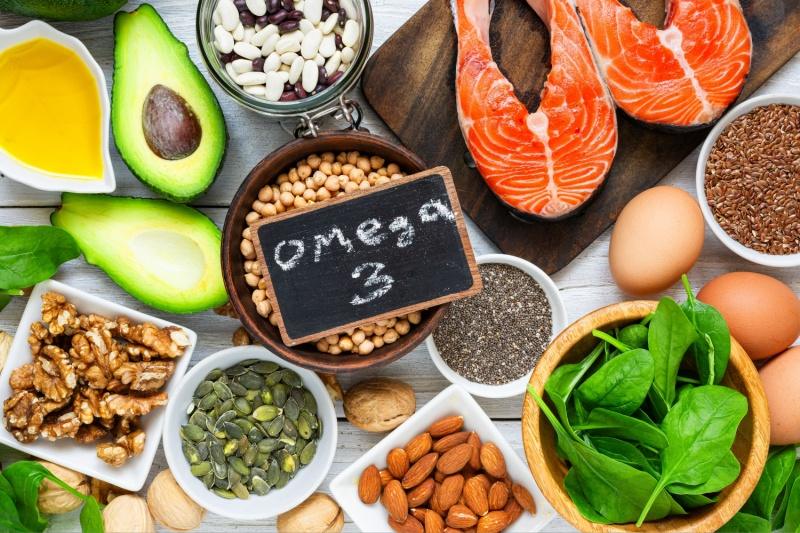
The connection between nutrition and मानसिक स्वास्थ्य – ‘food and mood’ – is unmissable. Improving your nutrition can directly affect mental health symptoms and improve your mental well-being.
इनके बारे में जानें:
- Understanding the link between food and mental health
- The impact of nutrition on mental health
- Nutrients for a healthy mind
- Foods to limit for optimal mental health
Understanding the link between food and mental health

Eating healthy, nutritious foods can help improve mood, तनाव कम करें, and increase cognitive functioning. Maintaining a balanced diet that includes fresh fruits and vegetables provides vital vitamins, minerals, and antioxidants that can help reduce the risk of developing mental health conditions such as depression, anxiety, and bipolar disorder. On the other hand, processed foods can lead to an unhealthy lifestyle and could harm mental health due to their high sugar content, which can lead to mood swings and worsen a variety of mental health symptoms.
The impact of nutrition on mental health
Certain foods have an impact on your moods, thoughts, and behavior. This means you should be cautious about what to eat, keeping nutrition and mental health in mind. A balanced diet of fresh fruits and vegetables, lean proteins, whole grains, healthy fats, vitamins, minerals, and antioxidants is key to maintaining good mental health. Furthermore, research has found that omega-3 fatty acids can help to reduce symptoms of depression. By avoiding processed food and focusing on eating more healthy foods, you can ensure getting all the necessary nutrients for good health. On the other hand, good nutrition can help protect against these conditions and even improve existing mental health issues.
Nutrients for a healthy mind
Eating right is essential for a healthy body, mind, and spirit, making it important to ensure our diets are as nutritious as possible. A healthy mind requires a variety of nutrients, including:
Omega-3 fatty acids: Supporting brain function

Foods high in omega-3 fatty acids, such as fatty fish and walnuts, and antioxidants, including berries, broccoli, and pumpkin seeds, help support healthy brain function. They help the brain create new nerve cells and improve mood. They may also slow cognitive decline and help with stress response.
Vitamins and minerals: Key nutrients for mental health
Leafy greens, eggs, and whole grains contain vitamins and minerals. Leafy greens help sharpen the mind and improve cognitive function, alertness, and memory. Egg white is a good protein source. Whole grains are a good source of glucose, which provides a steady supply of energy so the brain can concentrate and focus well throughout the day.
Vitamin B12, Vitamin D, Zinc, and Magnesium
Vitamin B12, D, zinc, and magnesium are present in fatty fish, mushrooms, fortified products, milk, cereal grains, nuts and seeds like almonds and peanuts, and healthy oils like sunflower and soybean.
Probiotics and gut health
Your brain communicates with your gut’s microbiota. And it goes both ways. Your gut’s microbiota can also talk to your brain. Recent studies show that consuming probiotics may help improve your mood.
Foods to limit for optimal mental health
To improve your mental health, limit the following foods:
Processed foods and added sugars
Eating a lot of processed foods like fried food, processed meats, refined cereals, candy, pastries, and high-fat dairy products can increase the risk of anxiety and depression. Refined sugar should make up no more than 10% of your total calories. Sugar-filled snacks like candy and soft drinks can cause your energy levels to fluctuate.
Excessive caffeine and alcohol
Caffeine can make you feel anxious, nervous, or depressed. It can also impact your sleep. Caffeine is found in coffee, tea, energy drinks, and chocolate. Alcohol can cause low mood, irritability, and aggressive behavior.
Inflammatory foods and trans fats
To reduce inflammation and support mental health, limit foods high in saturated fats like cheese and oils, trans fats found in baked goods, fried foods, microwave popcorn, refrigerated biscuits, dough, and non-dairy coffee creamers.
Nutrition and mental health go hand-in-hand, and improving your diet can improve your holistic well-being. So, make a संतुलित आहार a part of your everyday life.
Stay tuned to the Activ Living Community. Keep up to date with the latest health tips and trends through expert videos, podcasts, articles, and much more on पोषण, फिटनेस, सचेतन, और लाइफस्टाइल से जुड़ी बीमारियां like Asthma, Blood Pressure, Cholesterol, and Diabetes. Activ Living ke saath sahi sehat ki shuruat ABHI karo.
You may also be interested in the following blogs:
Popular Searches
How to lower blood pressure | Fruits good for liver | Unhealthy foods | रागी के लाभ | बेसल मेटाबोलिक रेट | हाई ब्लड प्रेशर के लिए एक्यूप्रेशर पॉइंट्स | Ayurvedic medicine for blood pressure | How to control cholesterol at home | Homeopathy for Asthma | Biological Age | Home remedies for TB | Natural beta blockers | Negative effects of internet | Types of walking | ब्लड प्रेशर कैलकुलेटर | ब्लड शुगर कैलकुलेटर | BMI कैलकुलेटर





 1800-270-7000
1800-270-7000






